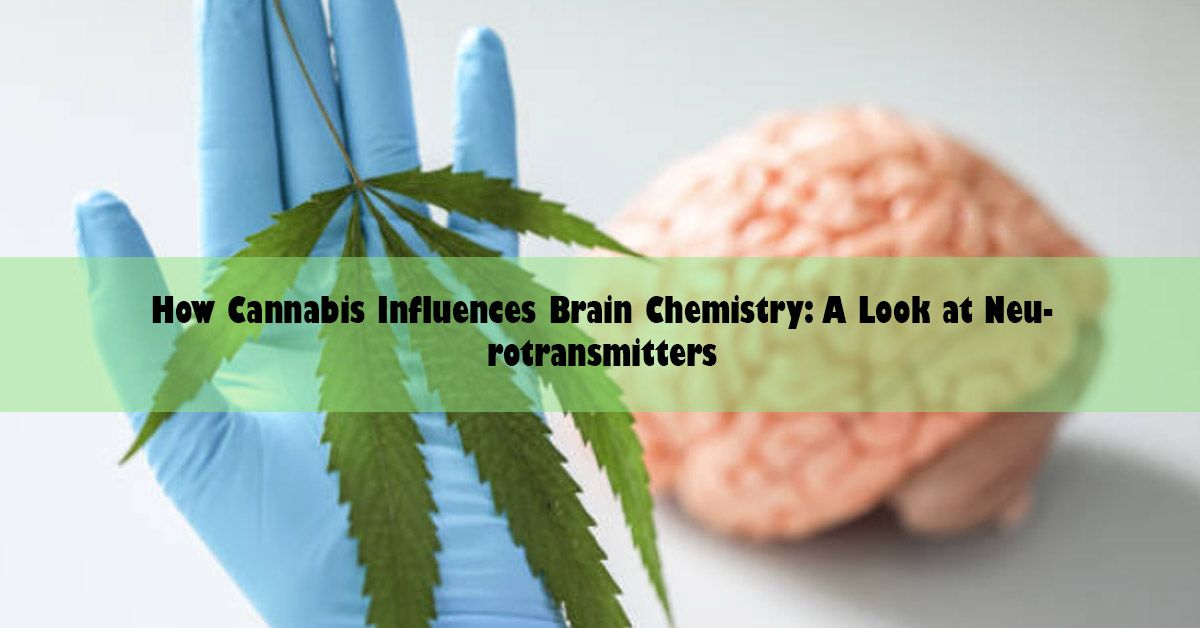How Cannabis Influences Brain Chemistry: A Look at Neurotransmitters

- How Cannabis Influences Brain Chemistry: A Look at Neurotransmitters
- What Are Neurotransmitters and Why Are They Important?
- Which Neurotransmitters Does Cannabis Affect?
- How Does Cannabis Affect Neurotransmitters?
- The Role of the Endocannabinoid System (ECS)
- THC and Dopamine: The Pleasure Effect
- Cannabis and Serotonin: Impact on Mood
- GABA, Glutamate, and Cognitive Performance
- What Does Research Say About Cannabis and Brain Chemistry?
- Risks and Considerations
- Future Research Directions
- Frequently Asked Questions (FAQs)
- How does cannabis affect dopamine?
- Can cannabis help with anxiety or depression?
- Does cannabis impact memory and learning?
- Is cannabis safe for long-term brain health?
- Conclusion
Image Source: Istock
How Cannabis Influences Brain Chemistry: A Look at Neurotransmitters
Cannabis has gained growing attention for its effects on brain chemistry and mental health. Understanding these interactions is key to recognizing its therapeutic potential for patients seeking alternative options.
Research shows that cannabinoids such as THC and CBD interact with the endocannabinoid system to influence mood, memory, and stress. Patients can explore these benefits with convenient access through dispensary weed delivery Folsom, which makes it easier to find products that support mental well-being. This blend of scientific discovery and accessibility underscores cannabis’s role in modern health practices.
This article dives into how cannabis interacts with neurotransmitters and what it means for mood, cognition, and mental health.
What Are Neurotransmitters and Why Are They Important?
Neurotransmitters are the brain's chemical messengers. They transmit signals between nerve cells and play a vital role in:
- Mood regulation (happiness, stress control)
- Cognition (focus, memory, learning)
- Behavior (motivation, reward response)
When cannabis enters the system, it alters neurotransmitter activity, leading to both positive effects and potential risks.
Which Neurotransmitters Does Cannabis Affect?
1. Dopamine
Often called the "feel-good" neurotransmitter, dopamine is responsible for pleasure and motivation.
2. Serotonin
This neurotransmitter stabilizes mood, influences sleep, and manages anxiety.
3. GABA (Gamma-Aminobutyric Acid)
GABA helps calm brain activity, reducing stress and promoting relaxation.
4. Glutamate
The main excitatory neurotransmitter, glutamate, supports learning and memory functions.
How Does Cannabis Affect Neurotransmitters?
The Role of the Endocannabinoid System (ECS)
The ECS is a cell-signaling network that regulates mood, appetite, and memory. Cannabis compounds like THC (tetrahydrocannabinol) and CBD (cannabidiol) interact with cannabinoid receptors (CB1 and CB2), influencing neurotransmitter release.
THC and Dopamine: The Pleasure Effect
THC stimulates dopamine release, creating the euphoric “high.” However, frequent use can lower dopamine levels, affecting motivation and mood stability.
Cannabis and Serotonin: Impact on Mood
Small doses of cannabis may boost serotonin activity, helping with anxiety and depression. In contrast, high doses or chronic use can disrupt serotonin balance, sometimes worsening anxiety symptoms.
GABA, Glutamate, and Cognitive Performance
Cannabis decreases GABA activity, reducing stress and promoting calmness. It also affects glutamate transmission, influencing memory and learning.
What Does Research Say About Cannabis and Brain Chemistry?
- Animal Studies: Show THC significantly alters dopamine and serotonin pathways.
- Human Trials: Suggest potential benefits for chronic pain and mood disorders but note risks of dependency.
Therapeutic Applications
- Pain Relief – Through dopamine and endocannabinoid signaling
- Anxiety & Depression Management – Potential benefits with careful dosing
- Mood Disorders – Possible adjunct treatment with ongoing research
Risks and Considerations
Adverse Effects on Brain Chemistry
- Dependency: Long-term THC use can affect dopamine pathways.
- Cognitive Decline: Chronic use may impair memory and focus.
Individual Responses Vary
Genetics, mental health history, and dosage all influence how cannabis affects neurotransmitters.
Future Research Directions
- Long-Term Impact Studies: More research on prolonged use and mental health outcomes.
- Strain-Specific Effects: Investigating how different cannabis strains influence neurotransmitter systems.
- Personalized Treatments: Potential for customized cannabis-based medications.
Frequently Asked Questions (FAQs)
How does cannabis affect dopamine?
Cannabis, particularly THC, increases dopamine release, causing feelings of pleasure. Long-term use may lower dopamine activity.
Can cannabis help with anxiety or depression?
Yes, in low doses, cannabis may improve mood and reduce anxiety, but excessive use can have the opposite effect.
Does cannabis impact memory and learning?
Yes. Cannabis can alter glutamate activity, affecting cognitive performance, especially with heavy or prolonged use.
Is cannabis safe for long-term brain health?
Current research suggests risks of dependency and cognitive changes with chronic use. More studies are needed to confirm long-term safety.
Conclusion
Cannabis significantly affects neurotransmitters like dopamine, serotonin, GABA, and glutamate, influencing mood, cognition, and overall brain function. While research highlights both therapeutic potential and risks, responsible use and informed decision-making are key.
If you’re considering cannabis for wellness or mental health, always consult a professional and choose reliable options. For those in Folsom seeking convenience and quality, Fiori Delivery provides trusted solutions.
